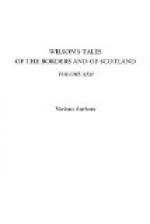Unlike all others, however, he, my poor father, believed implicitly my assertions of entire innocence of the crime for which I had been transported. But he felt bitterly for the degrading situation in which I stood, and from which neither my own conscious innocence nor his convictions, he was but too sensible, could rescue me in so far as regarded the opinion of the world.
Having told my father my story, he told me his. It was simply this—the story of hundreds, thousands. Tempted by the favourable accounts he had heard and read of Australia, he had come to the resolution of emigrating; had, with this view, sold off at home; and here he was. He added that he had obtained a grant of land, of about 500 acres, in the neighbourhood of Liverpool, on very favourable terms; that although he had not found everything quite so suitable or so well-ordered as he had expected, he had no doubt of being able to do very well when once he should have got matters put in proper train. He said he had already got a very good house erected on the farm, and that although their situation for the first two or three months was bad enough, they were now pretty comfortable; and he hoped that, with my assistance—seeing, as he interpolated with a faint smile, I had just cast up in the nick of time—they would soon make things still better.
“Your poor mother, Davie,” continued my father, recurring to a subject which we had already discussed—for my first inquiries had been after that dear parent, who, I was delighted to learn, was in perfect good health, although sunk in spirits in consequence of long mental suffering on my account,—“Your poor mother, Davie,” he said, “will go distracted with joy at the sight of you. Her thoughts by day, her dreams by night, have been of you, Davie. But,” he added, seeing the tears streaming down my cheeks, “I will not distress you by dwelling on the misery you have occasioned her. It’s all over now, I trust, and you will compensate for the past. Neither will I say a word as to the folly of your conduct in flying your father’s house as you did. You have paid dearly for that false step; and God forbid, my son, that I, your father, should add to the punishment. You are, I perceive, too sensible of the folly to render it necessary. So, of that no more.”
Of that folly I was indeed sensible—bitterly sensible; and could not listen to the calm, rational, and kind language of my father, without looking back with amazement at the stupidity of my conduct. It now seemed to me to have been the result of utter insanity—madness. I could neither recall nor comprehend the motives and impulses under which I had acted; and could only see the act itself standing forth in naked, inexplicable absurdity. Recurring again to the circumstances which had led to my present unhappy position, and which were always floating uppermost in my father’s mind—
“That scoundrel, Digby,” he said, “must have been at the bottom of the mischief, Davie. It must have been he who put the spoon into your pocket. What a fiendish contrivance!”




